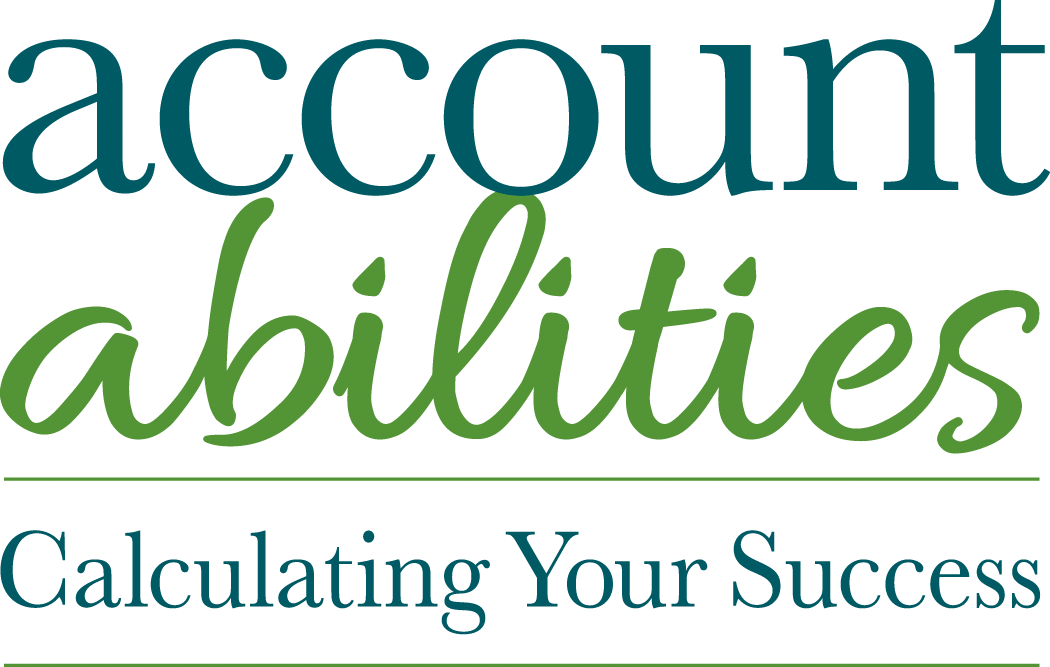When it comes to managing a small business, one of the most crucial yet often overlooked components is bookkeeping. Sure, you might think handling your books seems like an easy way to save some money. After all, who knows your finances better than you?
But the truth is, diving into the complex world of accounting can quickly turn overwhelming. With countless transactions to track and regulations to understand, many entrepreneurs find themselves bogged down by numbers rather than focusing on growing their business.
So, should you take the DIY approach or seek local expertise? The answer might just shape the future of your business, so let’s explore what each option has to offer.
Exploring Small Business Bookkeeping
Understanding the fundamentals of bookkeeping is vital for the health and performance of any small business. At its core, bookkeeping is about maintaining an orderly record of all financial transactions—every sale, every expense, every investment that your business makes. These documents support the creation of accurate financial reports needed for internal usage as well as tax purposes, and they constitute the basis for well-informed decision-making.
Importance of Detailed Records
Keeping detailed records means more than simply logging numbers; it’s about cultivating a comprehensive view of your business’s financial landscape. This includes consistently tracking expenses, analyzing revenues, and making note of investments. Maintaining such records ensures that you know where you stand financially at all times, allowing you to make informed decisions. For instance, without a clear understanding of cash flow, businesses may encounter difficulties when it comes to making bill payments or investing in growth strategies.
Technology’s Role in Modern Bookkeeping
Now let’s talk about how technology has transformed bookkeeping practices. The emergence of digital tools has fundamentally shifted how small business owners approach financial management. These platforms allow for real-time tracking and analysis of finances, giving business owners unprecedented insight into their operations.
Entrepreneurs can access their financial data from any location at any time by implementing cloud-based solutions. This flexibility streamlines day-to-day processes and enhances decision-making capabilities. You can practically see trends emerging in your revenue streams or expenses from anywhere with an internet connection!
While technology undoubtedly simplifies bookkeeping, it raises a critical question: Should business owners attempt to manage this essential function on their own, or would it be wiser to engage professional assistance?
DIY Bookkeeping: Pros and Cons
Many small business owners are attracted to the idea of handling their bookkeeping because it seems like a straightforward way to save money. The allure of cost savings is significant; by avoiding professional fees, you can keep more of your hard-earned revenue. Plus, with affordable software solutions readily available, you can manage your books without breaking the bank. This hands-on approach also offers you greater control over financial transactions, allowing you to dive deep into every detail and understand your cash flow intimately. It’s when the numbers start to reflect not just trends but stories about your business that many entrepreneurs feel empowered.
However, the truth is that bookkeeping requires more than just entering numbers. The complexity can be downright overwhelming! Here’s where flexibility can become a double-edged sword: while you have the freedom to manage your finances on your timeline, juggling multiple responsibilities may create an even heavier load.
Pros of DIY Bookkeeping
- Cost Savings: By taking charge of your bookkeeping, you can significantly cut down on costs associated with hiring professionals.
- Control: You get to oversee every transaction, giving you a complete picture of your financial standing.
- Flexibility: Being able to manage finances at any time allows for adjustments based on real-time performance.
Despite these benefits, one shouldn’t overlook the significant challenges that DIY bookkeeping presents. Many owners experience the downside of this approach, feeling overwhelmed as legal terms and accounting standards pile up around them like unpaid bills.
Cons of DIY Bookkeeping
Furthermore, the margin for error in this practice is notably high. The adage “you don’t know what you don’t know” applies here; mistakes in bookkeeping can lead to costly financial and legal issues down the line. A late form submission might seem negligible now but could snowball into tax penalties or audits later, creating unnecessary stress and anxiety for you as a business owner.
Given these challenges related to managing finances independently, seeking professional assistance could be an effective strategy for increasing overall productivity and peace of mind within your operation.
Advantages of Hiring Local Help
One noteworthy advantage of hiring local bookkeeping services is the personalized service they provide. Unlike larger firms that view clients as mere numbers, local bookkeepers take time to understand the specific needs and nuances of your business. It’s about building a relationship; they know you, your goals, and your unique challenges. This personal touch ensures you’re not just another account in their system but rather a valued partnership aimed at mutual success.
Professional bookkeepers come equipped with years of specialized training and experience in managing finances for small businesses. Unlike the occasional mistakes one might make while DIY-ing their bookkeeping, these experts are adept at navigating intricate financial landscapes, whether they’re handling routine expenses or complex tax preparation.
All these advantages revolve around a holistic approach to financial management that goes beyond simple number crunching.
When you partner with local bookkeeping services, you’re not simply outsourcing a task; you’re investing in a team dedicated to improving your overall financial health. They become familiar with your operations, allowing them to offer strategic insights tailored to your specific circumstances. Their understanding of local taxes and regulations also means you gain access to knowledge that mitigates potential financial pitfalls before they happen.
Some additional perks you may enjoy include
- Timely amendments: They monitor changes in tax laws, advising you on adjustments needed to maintain compliance.
- Proactive problem-solving: As an expert team, they anticipate issues before they arise and recommend actionable solutions.
- Scalability: With growth, these services can adapt to your evolving bookkeeping needs without requiring you to onboard new staff.
Understanding this model empowers small business owners to allocate their energies toward growth and innovation while leaving the complexities of bookkeeping to those who specialize in it.
Cost Comparison: DIY vs. Professional Services
DIY bookkeeping is more than software costs; it’s also about your time’s value. The first thing to consider is the software you’ll need. While that seems manageable, don’t forget to factor in the hours you will invest learning the program and maintaining your financial records. Many business owners find themselves spending 5-10 hours a week—time that could be better invested in growing their business.
DIY Bookkeeping Costs
The key costs of DIY bookkeeping include not just the initial spend but also the potential cost of errors. Even slight errors in filing can result in penalties or lost deductions in the long run. It’s difficult to put a price number on these effects, but many small business owners experience unexpected surprises during tax season as a result of forgotten details—which is easy to do while juggling many tasks.
Professional Bookkeeping Costs
While hiring a local bookkeeper means incurring direct fees, it often results in significant savings in terms of valuable personal time and minimized risk for costly errors. The fees for professional services can range significantly, contingent upon the complexity of your specific needs.
Think of professional bookkeeping as an investment rather than merely an expense. You’ll ensure accuracy and gain insights from seasoned professionals who can contribute strategic advice derived from your financial data.
This leads us to an important realization: It’s not solely about dollars and cents—it’s about how much stress you’re willing to shoulder versus gaining peace of mind with a reliable partner. With your financials managed accurately by experts, you can sleep easy knowing that your business is compliant and well-organized.
Finding the Best Bookkeeping Solution for Your Business
Your expertise with financial responsibilities and the complexity of your business operations largely determine the ideal bookkeeping technique. Understanding whether to manage your books alone or transfer the job to a professional can have a big impact on your peace of mind and your company’s financial security.
Evaluate Your Time And Financial Expertise
Begin by assessing your personal financial expertise and the time you can realistically devote to bookkeeping. Many small business owners find managing ledgers, reconciling bank accounts, and staying up to date on tax rules to be burdensome and stressful. If these chores seem like a burden rather than a strength, hiring a professional accountant from the start is typically the most efficient and stress-free option.
In contrast, if you’re confident in your financial abilities and enjoy managing budgets, tracking costs, and analyzing cash flow, a hands-on approach may be beneficial. Even in these circumstances, engaging with a bookkeeper on a regular basis can help assure accuracy and compliance
Finally, outsourcing to a professional allows you to focus on your primary business activities while guaranteeing that your finances are managed by someone who has the necessary expertise and experience to negotiate changing tax rules and accounting standards.
Consider The Complexity Of Your Business
Professional bookkeeping services are more important when your firm grows in complexity. A small operation with few transactions could get away with simple software. However, as your firm expands—adding product lines, personnel, or different income channels—the need for proper bookkeeping grows rapidly.
Hiring a professional bookkeeper ensures that payroll, inventory management, financial reporting, and compliance are handled accurately. Having a dedicated specialist during high-pressure periods, like tax season or year-end closing, can help you reduce your workload and avoid costly mistakes.
At Accountabilities, many clients express relief after moving from disorganized records to a structured, professionally managed system. This transformation brings not just clarity but also confidence in making sound financial decisions.
Common Bookkeeping Mistakes to Avoid
Maintaining correct bookkeeping is critical to any successful business. A common mistake among small business owners is combining personal and business money. This behavior not only confuses your records, but it can also have major consequences during tax season. Keeping these accounts separate allows for clearer tracking and reporting.
Inaccurate Recordkeeping
Another major problem is failing to accurately and timely record transactions. Even minor data input errors can skew financial results and lead to poor business decisions. Consistently examining your books helps you spot errors early and keeps your finances in order.
Neglecting Data Backup and Security
With so much data kept online, failing to back up your information or employing secure methods might be problematic. A single technical fault or cyberattack could result in data loss. Using dependable bookkeeping software with security features, as well as backing up your data on a regular basis, can help safeguard your firm from unplanned downtime.
Avoiding these blunders with expert bookkeeping assistance or strong procedures can save time, decrease stress, and improve overall financial clarity.
If you’re looking for personalized strategies to streamline your finances and reduce errors, contact Accountabilities at 717-919-7602 to book a session and explore how our tailored services can support your small business needs.
Investing time in proper bookkeeping now will alleviate stress later and strengthen the foundation for your business’s growth.


